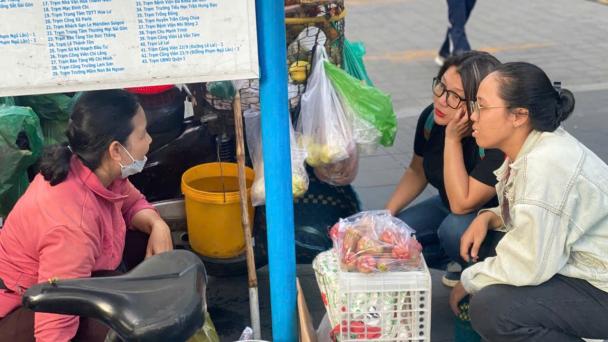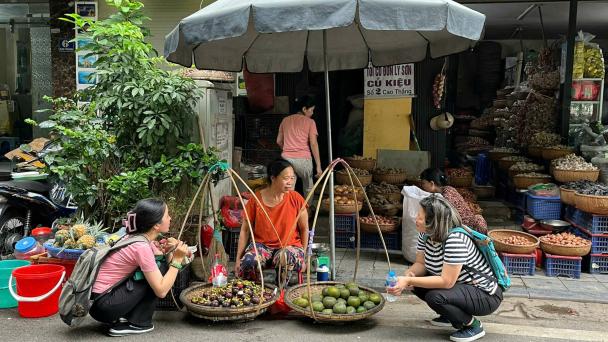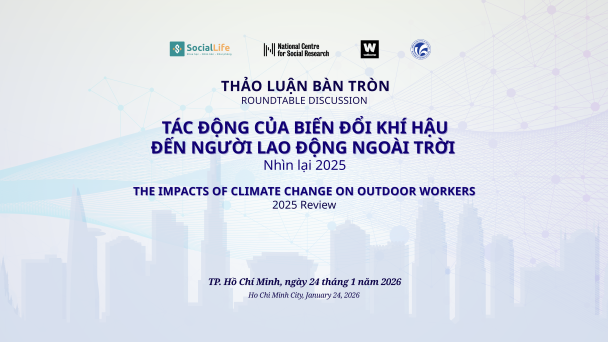Combatting the Gendered Impacts of Climate Change in the MENA Region


Click here to read our report, which provides a synthesis of key insights shared at the workshop.
In 2017, the International Panel on Climate Change projected that the MENA region would be one of the world’s regions hit hardest by climate change in the 21st century. This is further compounded by deepening socioeconomic and gendered inequalities, a marked slowdown in global economic activity as well as political conflict. Drawing on contributions from climate experts, civil society leaders and academics, this two-day workshop examined the gendered impacts of climate change in the MENA region.
Specifically, the workshop aimed to address the following questions:
Dr Anh Vu is a political ecologist and interdisciplinary scholar with over two decades of experience at the forefront of both development practice and academic research. Anh currently leads a £1.3 million Wellcome Trust-funded research project examining the health impacts of climate change on precarious outdoor workers in major cities across Vietnam. She is Research Director/ Climate Change at NatCen International, National Centre for Social Research (UK). Her research focuses on three key areas that address critical climate challenges: the climate-health nexus, the political economy of climate change, and the sustainability of delta social-ecological systems. She has collaborated extensively with major multilateral and bilateral institutions (e.g., UNDP, UN Statistics Division, the Australian Department of Foreign Affairs and Trade, Friedrich-Ebert-Stiftung) while also providing expert consultancy to governments, and inter/national NGOs (e.g., Asia Development Alliance, Oxfam, Transparency International, Global Philanthropy Indices, Management and Sustainable Development Institute). Her scholarly work is widely published in high-impact peer-reviewed journals such as World Development, Sustainability Science, Contemporary Politics, Community Development, VOLUNTAS, World Development Perspectives, and International Development Planning and Review. In particular, her two decades of research on civil society and authoritarianism has been acclaimed by Southeast Asian scholars for making "high-order" contributions to the field."
Sherine is the Director of NatCen International where she leads a team of senior experts and researchers dedicated to shaping global social policy and practice. She is widely acknowledged as an expert in humanitarian and development policy, conflict, security and evidence uptake with a focus on the UK, Africa and the Middle East. Sherine has two decades of experience in leading and delivering on complex research projects and consortia as well as providing policy advice at a senior level to governments, donors and civil society organizations on their engagement in fragile and conflict-affected contexts.
Prior to establishing NatCen International, Sherine was a Senior Research Fellow at ODI where she launched and co-led a cross-institutional initiative on peace and sustainability in the Mediterranean region. Earlier in her career, she set up a research unit on regional philanthropy and civic engagement at the American University in Cairo. Sherine has held fellowships at Keble College at the University of Oxford, the Department of Asia, Africa and the Mediterranean at the University of Naples ‘L’Orientale’ and the King Faisal Centre for Research and Islamic Studies in Saudi Arabia. She has also been a guest lecturer at the Royal United Services Institute (RUSI) and Cranfield University in England as well as the Doha Institute for Graduate Studies in Qatar. Her work can be found in the International Review of the Red Cross, the Oxford Handbook of the Sociology of the Middle East, Development in Practice as well as book chapters in edited volumes with Palgrave Macmillan and James Currey. Sherine sits on the Board of Trustees of Protection Approaches, a UK charity dedicated to combatting identity-based violence in the UK and globally.
Sherine holds a DPhil from the Department of International Development and St. Cross College at the University of Oxford.




Receive a regular update, sent directly to your inbox, with a summary of our current events, research, blogs and comment.
Subscribe